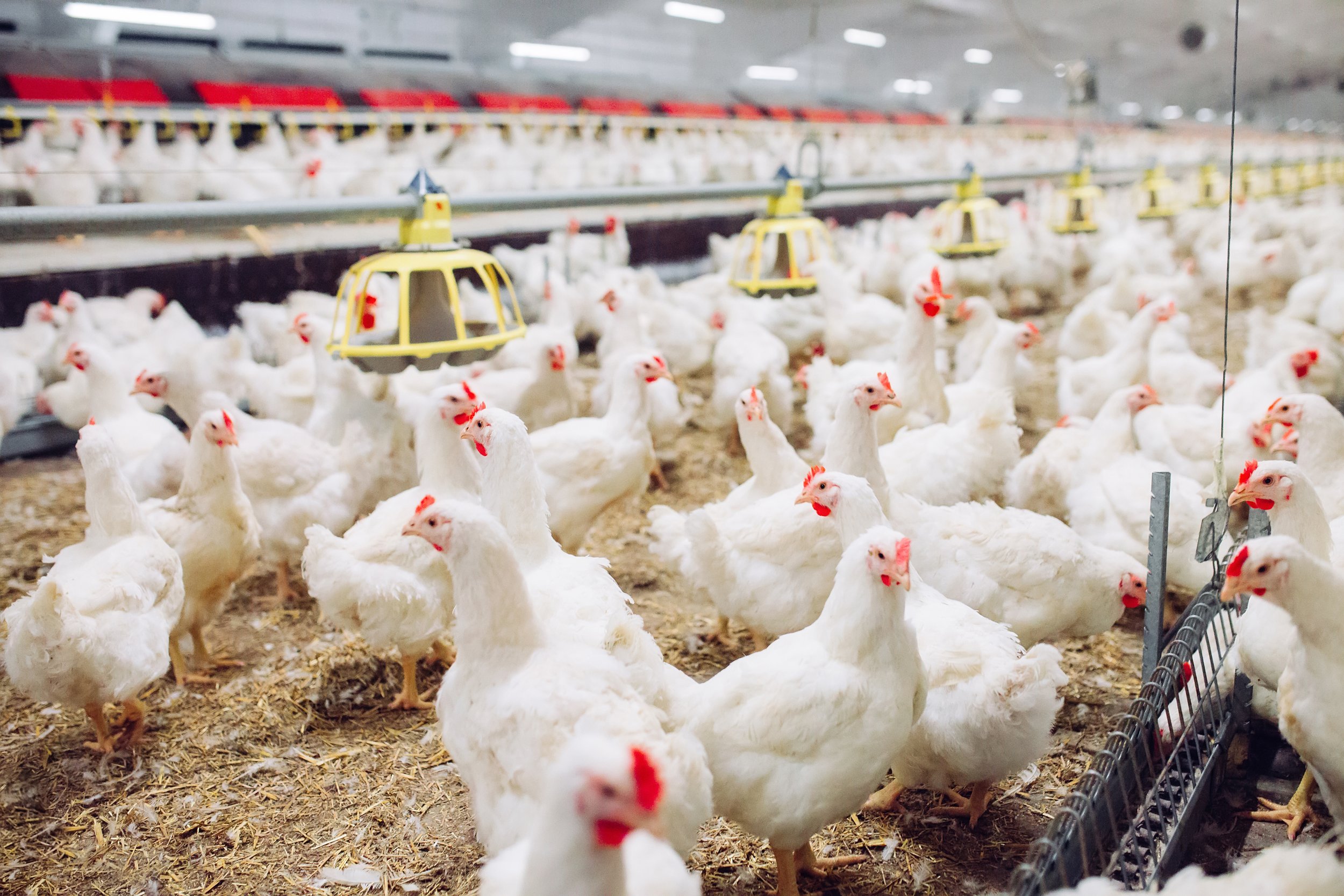Avian Influenza antigen and diagnostic devices
Avian influenza, more informally known as “bird flu”, is a virus that mainly infects birds, including domesticated birds like chickens, ducks, geese, and ostriches and wild birds like penguins, seagulls, swans, hawks, herons, etc. Influenza strains are named for the hemagglutinin and neuraminidase antigens on the surface of the virus – H5N1, H7N3, etc. Avian influenza strains of primary importance are H5, H6 (particularly in South Africa), and H7. The World Health Organisation and World Organisation for Animal Health track outbreaks, particularly of strains that are highly pathogenic (with a high risk of infecting humans).
Avian influenza is primarily controlled by monitoring poultry farms for outbreaks, and acting quickly to contain the outbreak. Although vaccination for avian influenza is available, it is prohibited in several countries, including South Africa, the United Kingdom, and the USA, because vaccination complicates the detection of infection – the diagnostic tests cannot distinguish between a healthy vaccinated bird and an infected one. Therefore, it is critically important to identify infection quickly, so that the healthy birds can be segregated and only the infected birds culled.
Smart Biotech has the exclusive license to produce virus-like particles that mimic the hemagglutinin antigens H5, H6, and H7 in plants, which will be used to produce highly specific and sensitive diagnostic tests for the South African and international market. These diagnostics will allow farmers and reference laboratories to conduct a single test that detects and identifies the avian influenza strain, where currently they first test for antibodies against avian influenza virus (not strain specific), and then for the virus itself. Crucially, our diagnostics are DIVA (Differentiation of Infected from Vaccinated Animals) compliant, paving the way for eventual use of vaccination to further protect the livelihoods of farmers.
For more information about avian influenza, see:
https://www.woah.org/en/disease/avian-influenza
https://www.fao.org/ag/againfo/programmes/en/empres/HPAI_Africa/situation_update.html
https://www.fao.org/ag/againfo/programmes/en/empres/Global_AIV_Zoonotic_Update/situation_update.html
https://www.who.int/health-topics/influenza-avian-and-other-zoonotic



